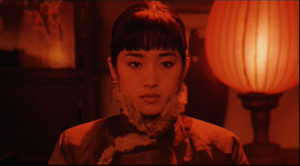And come they did.
Abstracts for chapters in The Routledge Companion to World Cinema pinged into our inboxes from those we had initially invited. Constructing the volume would take time and a great deal of consultation but for the moment at least we were delighted to receive offers of collaboration from some expert scholars. Indeed, in the next few posts I’ll be sharing some of those abstracts with you so that we can build an idea of how the edited book came together.
In time there will be misunderstandings, withdrawals and panic, as I will share as we go. But in this initial stage there was only delight at what might be accomplished when receiving and sharing abstracts like this one from Yingjin Zhang, Professor of Chinese Literature and Film Studies at the University of California, San Diego. His English books include Cinema and Urban Culture in Shanghai (1999), Screening China (2002), Chinese National Cinema (2004), From Underground to Independent (2006), Cinema, Space, and Polylocality in a Globalizing China (2010), Chinese Film Stars (2010), A Companion to Chinese Cinema (2012) and New Chinese-Language Documentaries: Ethics, Subject and Place (Routledge, 2015). Here’s the abstract he sent us:
The Cinematic and the Real in a Century of Chinese Cinema

This chapter provides a historical account of Chinese cinema by tracking a persistent tension between the cinematic and the real over a century. The Chinese discourse of realism came in the 1920s amidst the call for national cinema and the effort to change the medium’s ‘westernized’ entertainment profile, and the pursuit of social realism prevailed in the 1930s-1940s, with the real now constituting a contested field in filmmaking and film criticism (e.g., between the leftists and soft film advocates). The official socialist realism of the 1950s-1970s, however, projects utopias of a new nation that depart from the cinematic real (often in the pretext of revolutionary romanticism), and the avant-garde filmmaking of the 1980s reclaims the real paradoxically by foregrounding the cinematic ontology (e.g., visual more than verbal). In the new millennium, a reconfiguration of the cinematic and the real is represented by the polarization between Zhang Yimou’s cinematic unreal in his fantastic martial arts blockbusters and Jia Zhangke’s cinematic real in his place-based independent aesthetics. Chinese film history indicates that the real always carries a subversive force that exceeds state control and the cinematic often intervenes to refashion the dominant discourse.
So far, so great.
Next up: Nollywood and the West African Video Revolution
